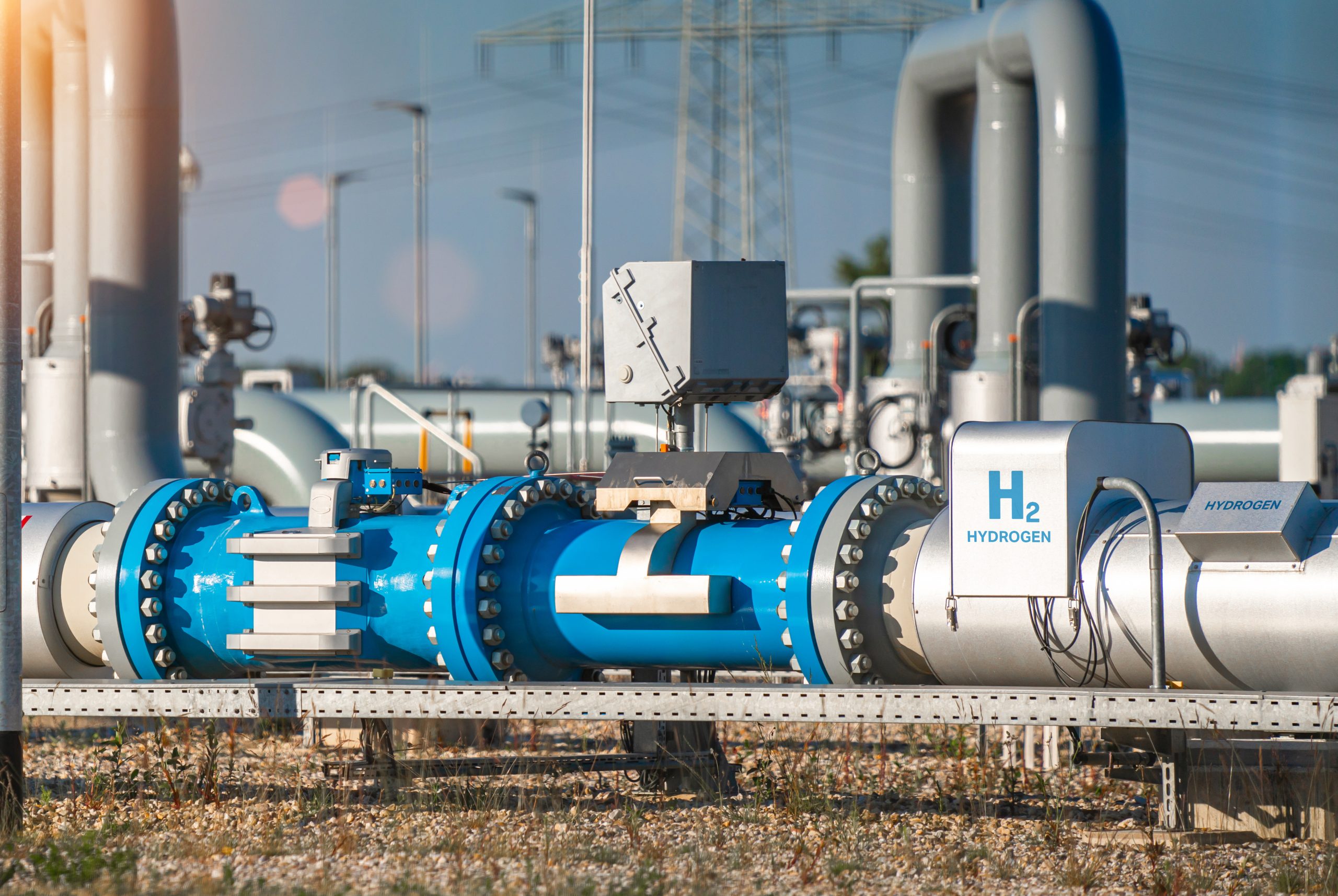HyFIVE: Developing a Hydrogen Fuel System to Support Jet Zero

A UK consortium of aerospace and academic leaders has been established with the view to develop a world-leading hydrogen fuel system and supply chain to support zero-emission aviation in the 2030s.
HyFIVE was announced this week by Chancellor of the Exchequer Jeremy Hunt, with initial funding nearing £40 million, comprised of £17 million in industry investment and £20 million from government.
With support from the ATI Programme, a partnership between Department for Business and Trade, Aerospace Technology Institute and Innovate UK (UKRI), the consortium combines the expertise of industry partners Marshall, GKN Aerospace and Parker Meggitt, while specialised R&D will be conducted by the University of Manchester, the University of Bath and Cardiff University.
Nusrat Ghani, Minister of State for Industry and Economic Security, described the announcement as a ‘win’ for the UK’s aerospace sector, adding that HyFIVE is: “Cementing the UK’s position at the forefront of zero emissions technology and taking the UK to new heights in the pursuit of cleaner, greener air travel.
This announcement is the latest in a long line of wins for UK aviation and builds on the success of the £4.5 billion investment as part of our Advanced Manufacturing Plan and launch of our Hydrogen Taskforce, placing UK expertise at the cutting edge of hydrogen fuel innovation.
Clear objectives shape the consortium’s route to zero emissions aviation
HyFIVE’s ultimate goal is to develop, test, and validate a modular, scalable cryogenic hydrogen fuel system architecture that is suitable for multiple aircraft classes and compatible with either hydrogen electric propulsion or hydrogen combustion powertrains.
Through the consortium, the collaboration will cover five key aspects of technology development for hydrogen fuel systems: storage, conveyance, indication, fuelling and venting.
Over the course of several years, a full technical programme defined by the HyFIVE consortium members will explore initial architecture development and supplier engagement, through to ground testing and final design review for the integrated fuel system.
By 2027 the consortium plans to have:
- developed and validated an integrated family of mature fuel system technologies and capabilities conducive to certification;
- conducted ground demonstration (TRL 6) of an integrated fuel system encompassing the storage, conveyance, indication, venting and fuelling systems;
- opened a range of flight demonstration and exploitation paths with prospective customers
- developed a customer-ready supply chain and industrialisation strategy.
Achieving these goals will ultimately support the successful introduction of a new generation of zero emissions aircraft in the 2030s.
HyFIVE will exploit the expertise of each partner
The industry partners involved in the consortium – Marshall, GKN Aerospace, and Parker Meggit – represent different areas of expertise that, in conjunction with their academic partners, will help meet HyFIVE’s objectives.
Marshall specialise in complex system design, integration and certification, with extensive experience in delivering aircraft fuel systems and complex aircraft modification projects.
With expertise in the design, manufacture and assembly of aircraft structures, engine components, and systems, GKN Aerospace will contribute its industry-leading advanced materials and hydrogen cryogenic system optimisation knowhow.
Parker Meggit will offer its expertise in fuel systems, electromechanical actuation and thermal management to lead on areas involving motion, control and thermal technologies.
With world-leading research capabilities and advanced testing facilities, the three universities involved in the consortium will offer R&D opportunities in the areas of hydrogen-electric propulsion, cryogenic applications, power transmission, turbomachinery and next-generation material development.
Marshall CEO Kathy Jenkins, said: “HyFIVE is a true UK powerhouse, bringing together industry leaders with a track record of certifying new aerospace technologies and the industrial scale to successfully deliver to market.”
Combining our respective strengths and drawing on support from some of the world’s top R&D centres will result in a consortium that is truly greater than the sum of its parts.
In addition to HyFIVES primary partners, the consortium will also support UK industry and the future development of a supply chain by enlisting SMEs to undertake more specialised challenges around testing, engineering support and component development.
Jacqueline Castle, Chief Technology Officer, Aerospace Technology Institute, said: “The HyFIVE programme is primed to solve the significant technical, safety, certification and industrialisation challenges associated with the application of LH2 in aviation and those identified by our FlyZero programme and Destination Zero strategy.
“The HyFIVE team will work in parallel with key regulatory frameworks and infrastructure projects, including the ATI’s own Hydrogen Capability Network, to ensure the UK maximises the gains from such a significant industrial research project.”
The UK is aiming to meet Jet Zero by 2050
GKN Aerospace Chief Technology Officer Russ Dunn commented: “We believe that zero emissions flight will be a core part of delivering a sustainable global aviation industry and will make an important contribution to the UK Government’s Jet Zero targets.
The HyFIVE programme will develop foundational technologies to deliver that future whilst also providing significant market opportunities for the UK as we look towards industrialisation.
“The ATI continues to be a vital part of the UK’s aerospace technology ecosystem, supporting important innovation projects like HyFIVE. We are very proud to be a partner in the HyFIVE programme and look forward to working in the consortium in the coming years.”
The UK government have set a target for the aviation industry of zero emissions by 2050, with hydrogen recognised as a key player in achieving this.

